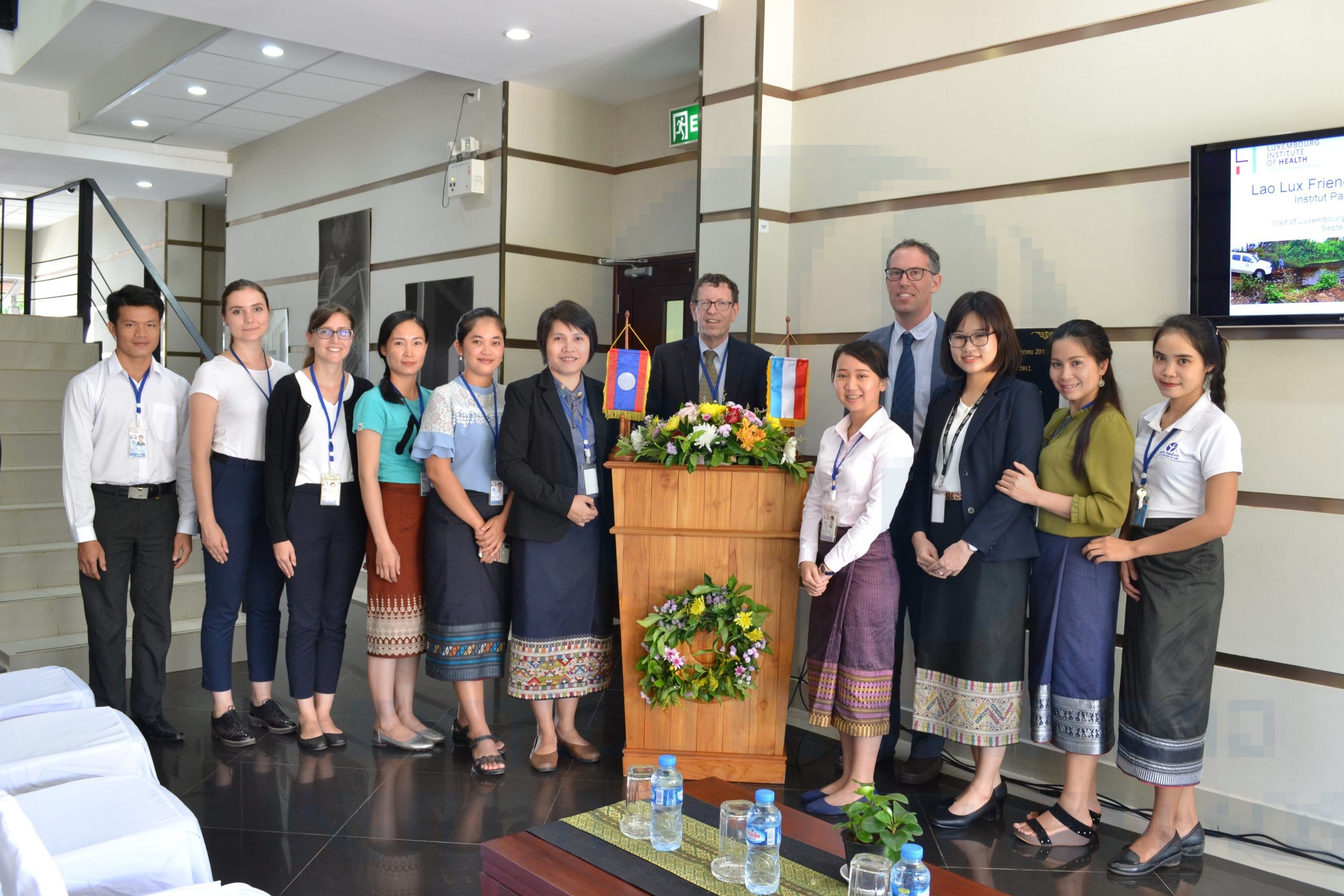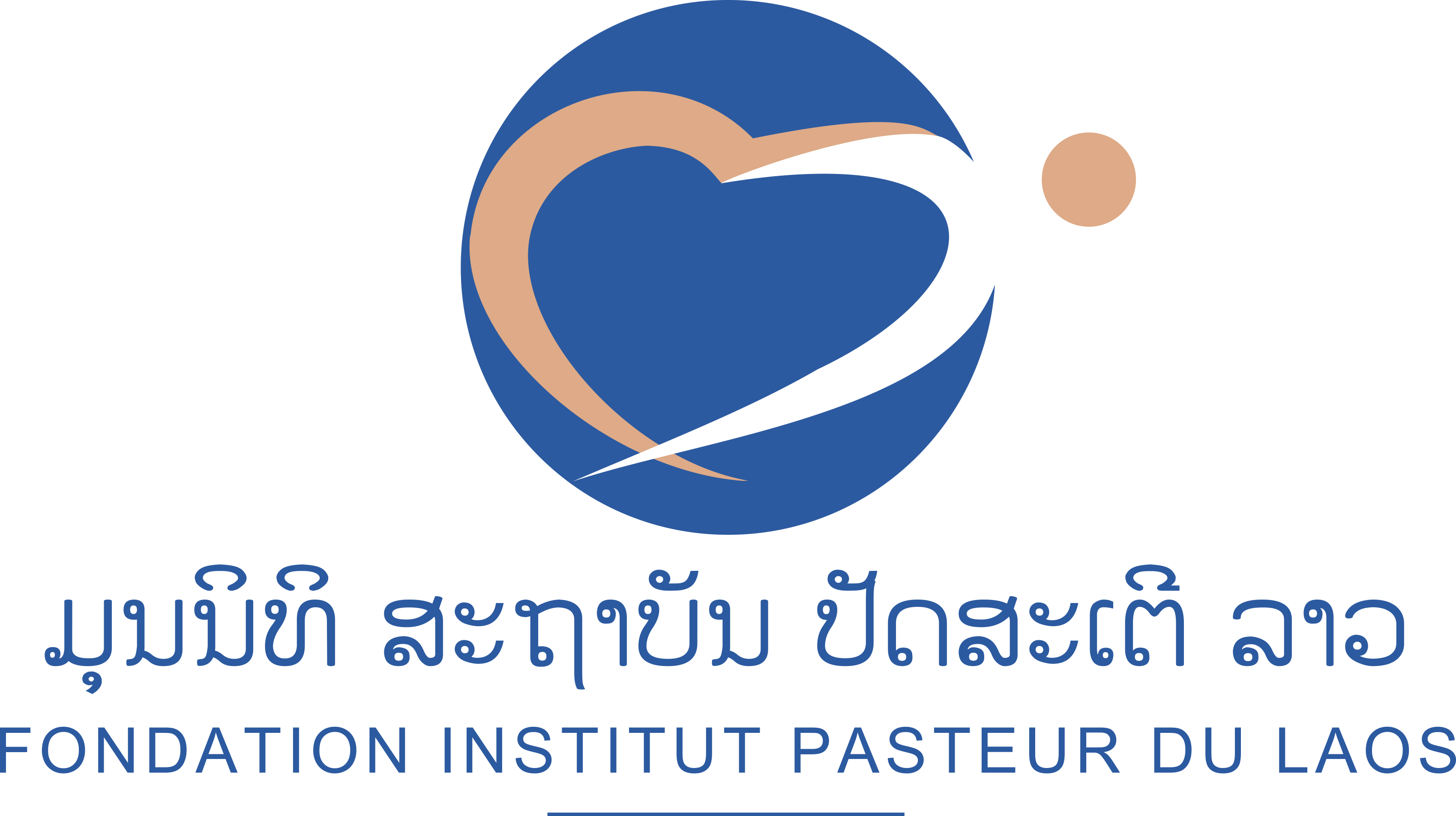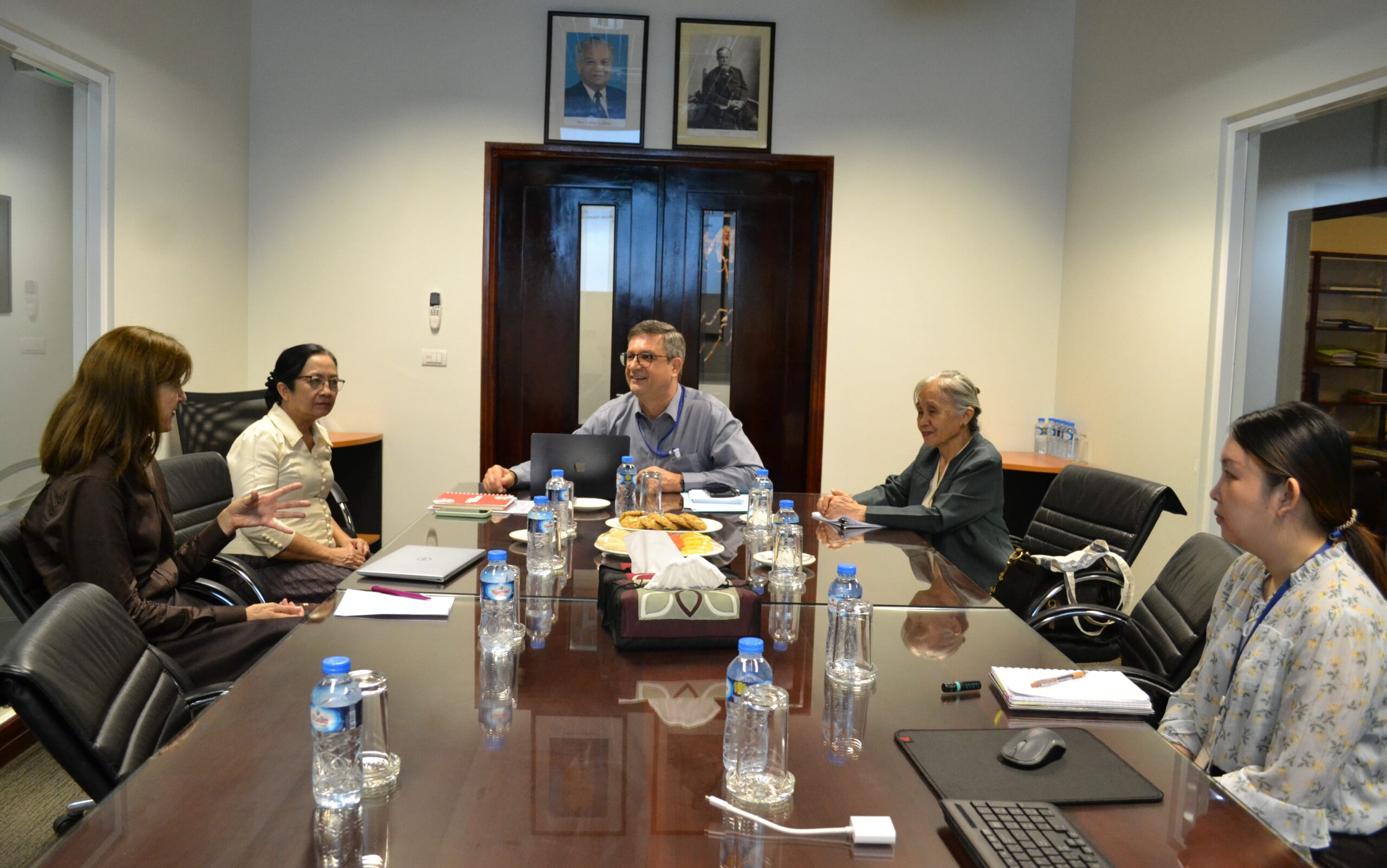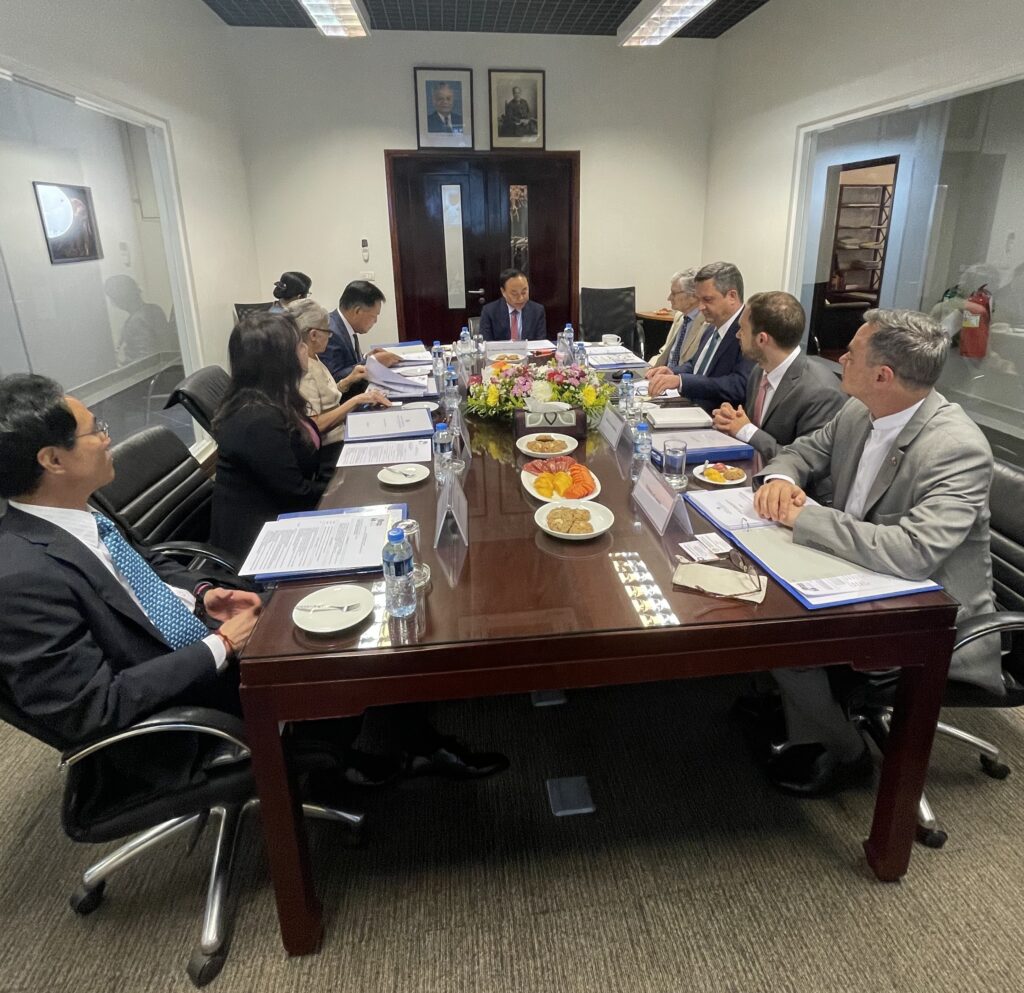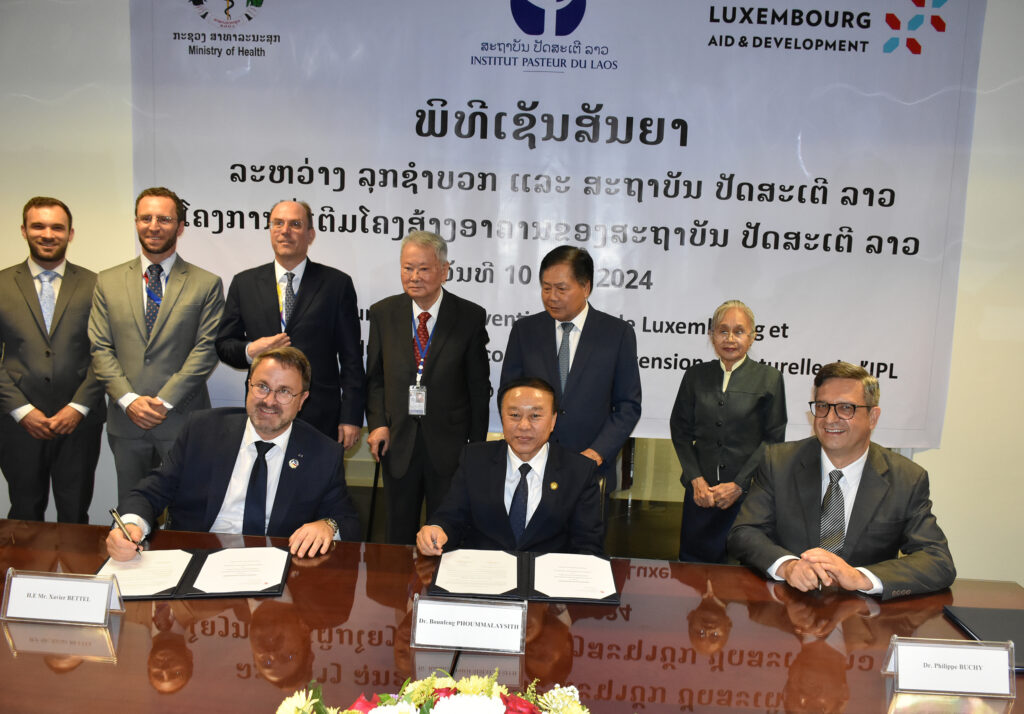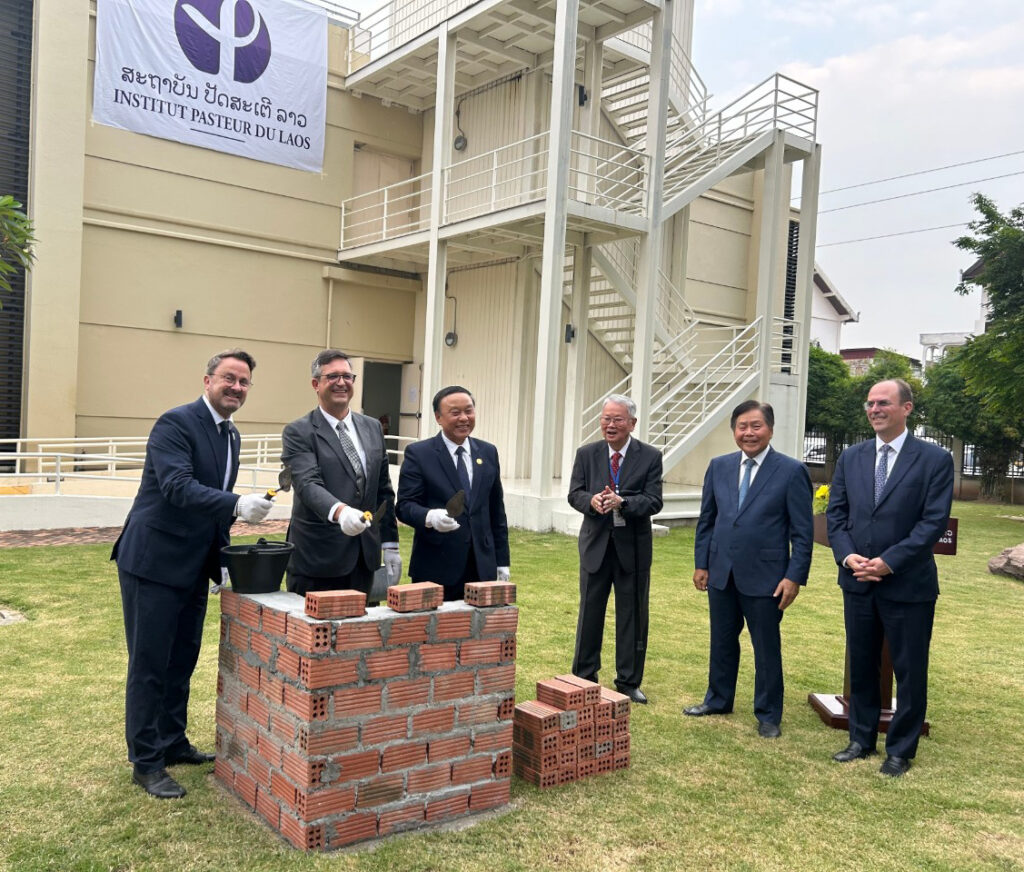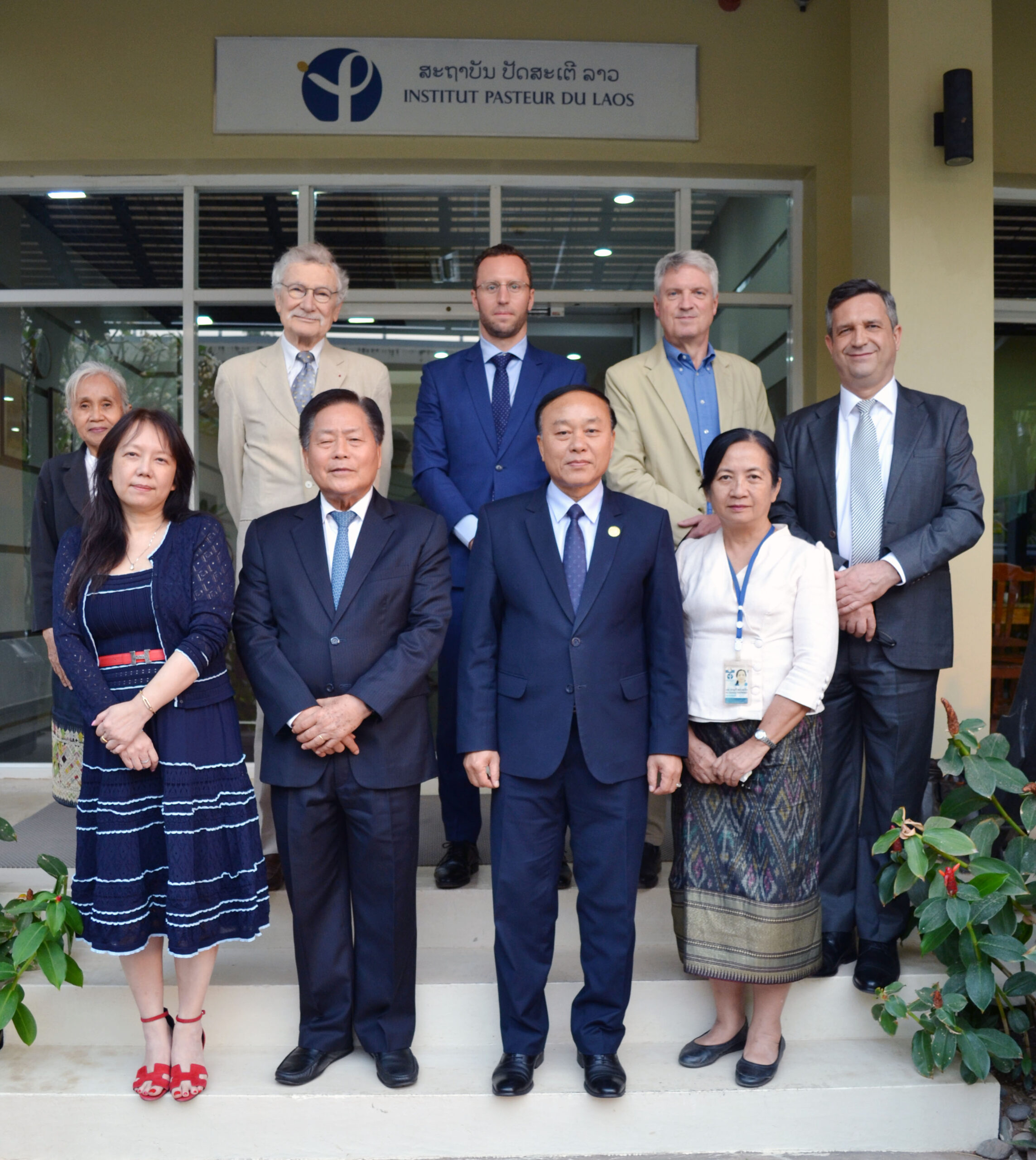Lao – Lux lab / Vaccine preventable diseases 2019
Head of Laboratory: Professor Claude MULLER, Scientific Director
The representative of Laboratory: Dr. Antony BLACK
Email:
Executive summary
The LaoLux Laboratory (LLL) aims to build capacity for investigations of human and animal infectious diseases that are of relevance for Lao PDR. All studies are conducted in close collaboration with local partners and focus mainly on the molecular epidemiology and seroprevalence of vaccine-preventable infectious diseases, as well as animal and zoonotic diseases. These studies have importance for stakeholders in public and animal health by providing estimates about the burden of specific infections, by promoting outbreak control and vaccination programs, by improving animal health and productivity, and by proposing measures to optimize national health strategies. Our evidence-based results and recommendations are communicated to stakeholders and partners in the form of written and oral reports and policy briefs virus. The emergence of vaccine-derived poliovirus has occurred in Lao PDR in recent years. It can only be prevented by high vaccination coverage and adequate disease surveillance. We find that adults born before the systematic introduction of the polio vaccine in Lao PDR have a lower seroprevalence of polio antibodies. Thus, in addition to the routine childhood vaccination and in the interest of efficient use of resources, we recommend that at least health care workers should be systematically vaccinated in a nationwide program We also detail a study regarding knowledge, attitude and practice towards vaccines in Lao healthcare workers. This important sub-group are at risk of infection from patients and also can transmit infections to patients. Furthermore, they can be an important source of information on vaccines for the general public. Our findings show a mixed knowledge, fair attitudes and fair practices regarding vaccination. Receiving advice from colleagues and having a free vaccine improved vaccine uptake. Vaccine promotion programs for HCW should take these factors into consideration.
Our study on hepatitis A virus (HAV) seroprevalence in Xiengkhouang province and Vientiane Capital showed evidence of a high level of the previous infection in adults. This disease is related to poor sanitation, and evidence of a high history of infection in those aged above 20 years old suggests poor sanitation in the past. Lower seroprevalence levels in young Lao adolescents and children may reflect improved sanitation in recent years. However, children in Xiengkhouang province had a higher seroprevalence than those in Vientiane Capital, indicating poorer sanitation in the rural areas. We suggest improved surveillance, awareness and sanitation.
Our collaboration with the Faculty of Agriculture at the National University of Laos continued with a study of poultry pathogens in backyard farms. In this study, we found high rates of avian viruses and demonstrated the co-circulation of diverse strains of coronaviruses and chicken anemia viruses. Interestingly, the phylogenetic analysis suggested that there is a cross-species transmission of viruses between chickens and ducks. We suggest ways to improve the control of avian viruses such as separation of bird species and tailored vaccination programs which would benefit the health of the birds and the economic sustainability of the smallholders.
Other ongoing and completed studies that will be reported in full in the report next year include investigating hepatitis B virus (HBV) infection in Lao dentists which showed that improvements in hygiene and awareness are warranted among Lao dentists. The results were reported to the Lao Dental Association and the data are being written as a manuscript. We also investigated the impact of the HBV vaccine introduction on infection of Lao adolescents and demonstrate a significant reduction in exposure and chronic infection rates following vaccine introduction. However, there remains a need to improve vaccine coverage, particularly of the HepB birth dose.
Human papillomavirus (HPV) can cause cervical cancer in infected women and Lao PDR has one of the highest rates of this cancer worldwide. In an ongoing study, we are investigating the genotype distribution of HPV in healthy women and aim to determine the prevalence of high-risk genotypes. Related to this, we are investigating the seroprevalence of antibodies against high-risk HPV genotypes in vaccinated and unvaccinated adolescent Lao girls, in order to gain insight into natural exposure levels and vaccine immunogenicity.
From March to May 2019, we were joined by Diana Cheung, a medical student from New York Institute of Technology, who did a project on “Knowledge and attitudes towards liver cancer and liver cancer screening among chronic HBV and chronic HCV patients in Vientiane, Lao PDR: a cross-sectional study.” We are also joined by Khamsai Khamphavong from the Lao Military Institute of Disease Prevention who will stay in the laboratory for 10 months to receive training in laboratory techniques and research. Thongchanh Khammounneurn, a Biomedical Masters student from the University of Health Sciences, completed her thesis on “Monitoring of immune response to HBV vaccination in Lao Red Cross and Blood Centre staff in Lao PDR”. Franziska Fuchs, a Medical student from Saarland University, investigated “Knowledge, attitude and practice survey among healthcare workers and pregnant women and immunity status on ToRCH-infections during antenatal care in Lao PDR”.
Vilaysone Khounvisith, from our laboratory, visited the Luxembourg Institute of Health and the Laboratoire National de Santé in Luxembourg for 2 months and received training in laboratory techniques and data analysis.
Financial support
In 2019, the laboratory was largely funded by the “PARECIDS II” grant from the Government of the Grand Duchy of Luxembourg and operates in close partnership with the Infectious Disease Research Unit at the Luxembourg Institute of Health, Luxembourg. A “Lao Equity through policy Analysis and Research Networks” (LEARN) research grant was awarded to Dr. Phonethipsavanh Nouanthong in 2018 to investigate the immunogenicity of human papillomavirus in Lao girls. We also receive support from ARBOSHIELD grant to facilitate the training of Lao military staff.
Our partners include Luxembourg Development Cooperation, Lao National Immunisation Programme, Lao University of Health Sciences, Faculty of Agriculture at the National University of Laos, Lao Tropical and Public Health Institute, Lao Red Cross and various hospitals nationwide.
Meeting presentations
7th Asian Vaccine Conference, Yangon, 13-15th September
“Immunogenicity of human papillomavirus vaccine among vaccinated adolescent girls in Lao PDR; a pilot study” Poster
“Timeliness of the pentavalent childhood vaccine in selected health care facilities in Bolikhamxay province” Poster
“Lasting benefit of infant hepatitis B vaccination in adolescents in the Lao People’s Democratic Republic.” Poster
“Seroprotection at different levels of the health care system after routine vaccination with DTPw-HepB-Hib in Lao PDR.” Poster
13th Vaccine Congress, Bangkok, 15-18th September “Seroprevalence of anti-tetanus antibodies in mothers and cord blood and associated factors in health-care settings in Lao People’s Democratic Republic” Poster
“High seroprevalence of Foot and Mouth Disease in Laos” Poster
“Timeliness of the pentavalent childhood vaccine in selected health care facilities in Bolikhamxay province” Poster
“Lasting benefit of infant hepatitis B vaccination in adolescents in the Lao People’s Democratic Republic.” Oral presentation
Adolescent Research Day and National Health Research Forum 2019, Vientiane Capital, 17-18th October
“Positive impact of hepatitis B vaccination in Lao PDR: Hepatitis B seroprevalence in adolescents” Poster
11th International Conference on Public Health among Greater Mekong Sub-Regional countries, Vientiane, 18- 19th October
“Immunity against Human Paillomavirus in vaccinated Lao adolescent girls” Oral presentation
“Moving forward to prevent hepatits B infection among healthy blood donors in Lao PDR” Poster
The Liver Meeting, 8-12th November, Boston, USA
“Knowledge and attitude towards liver cancer and liver cancer screening among HBV and HCV patients in Vientiane, Lao PDR” Poster
Mekong Hepatitis Symposium, 27-29th November, Vientiane
“Knowledge and attitude towards liver cancer and liver cancer screening among HBV and HCV patients in Vientiane, Lao PDR: a cross-sectional study” Oral presentation
Pasteur Institute Scientific Conference, Ho Chi Minh, 6th December
“Vaccine-preventable disease laboratory at Institut Pasteur du Laos; impact and immunogenicity of infant and maternal vaccination.” Oral presentation
Teaching and training activities
• Taught at Institute Pasteur International Workshop “Measles and Rubella Elimination: Options for Public Health Interventions”, Ho Chi Minh, 2-5th December
• The seminar has given to Lao Military staff on vaccines
• Short course on “Viral Hepatitis” given to Lao Tropical Public Health Institute students, November
• Organized training on microscope use and maintenance for veterinary staff from Xiengkhoung iVet school, following the donation of 2 microscopes
Manuscripts published 2019
Seroprotection at different levels of the health care system after routine vaccination with DTPw-HepB-Hib in Lao PDR. Hefele L, Syphan S, Xayavong D, Homsana A, Kleine D, Chanthavilay P, Nouanthong P, Xaydalasouk K, Phathammavong O, Billamay S, Xeuatvongsa A, Reinharz D, Muller CP, Black AP. Clin Infect Dis. 2019 Feb 19.
Knowledge, attitudes, and practices regarding vaccination among healthcare workers in Lao PDR. Sengchaleun V, Khampanisong P, Aye-Soukhathammavong P, Reinharz D, Black AP. Southeast Asian J Trop Med Public Health, March 2019.
Varicella-zoster and fever rash surveillance in Lao People’s Democratic Republic Nouanthong P, Hübschen JM, Billamay S, Mongkhoune S, Vilivong K, Khounvisith V, Sinner R, Grandadam M, Phonekeo D, Black AP, Muller CP. BMC Infect Dis. 2019 May 8;19(1):392.
Cross-species transmission of poultry pathogens in backyard farms: ducks as carriers of chicken viruses. Pauly M, Snoeck CJ, Phoutana V, Keosengthong A, Sausy A, Khenkha L, Nouanthong P, Samountry B, Jutavijittum P, Vilivong K, Hübschen JM, Black AP, Pommasichan S, Muller CP. Avian Pathol. 2019 Jun 14.
High prevalence of helminth infections in mother-child pairs from three central provinces of Lao People’s Democratic Republic. Pauly M, Sayasinh K, Muller CP, Sayasone S, Black AP. Parasite Epidemiology and Control. 2019
Seroprevalence of anti-tetanus antibodies in mothers and cord blood and associated factors in health-care settings in Lao People’s Democratic Republic. Ounnavong P, Chanthavilay P, Khampanisong P, Reinharz D, Muller CP, Black AP. Vaccine. 2019
Team:
Scientists:
1. Dr. Antony Black, Responsible of the Lab
2. Dr. Phonethipsavanh Nouanthong
3. Dr. Siriphone Virachith
Junior scientists:
1. Dr. Kinnaly Saidalasuk
2. Dr. Vilaysone Khounvisith
Technicians:
1. Latdavone Khenkha
2. Bounta Vongphachanh
3. Nouna Innoula
4. Nampherng Xayyavong
Visiting scientists from Department of Infection and Immunity, Luxembourg
1. Lisa Hefele
2. Franziska Fuchs
3. Janko van Beek
Project carried on in the lab
+Immunity levels to poliovirus in Lao children and adults before the vaccine-derived poliovirus outbreak: a retrospective study
+Knowledge, attitudes and practices regarding vaccination among healthcare workers in Lao PDR Hepatitis A virus in Lao People’s Democratic Republic
+Cross-species transmission of poultry pathogens in backyard farms: ducks as carriers of chicken viruses

